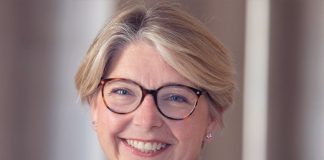Taiwan’s vice-president, Hsiao Bi-khim, has made a rare foray into Europe, addressing lawmakers gathered at the European Parliament in Brussels on Friday, 7 November.
Her appearance at the Inter-Parliamentary Alliance on China’s (IPAC) annual summit marks one of the most senior visits by a serving Taiwanese official to the continent in recent years and reflects Taipei’s effort to expand engagement with European capitals despite the absence of formal diplomatic ties.
Taiwan’s sole diplomatic partner in Europe remains the Holy See, yet several EU member states and European countries have in recent years hosted current or former senior officials from Taipei. Hsiao’s trip, undertaken with Foreign Minister Lin Chia-lung, fits that pattern. Lin visited multiple European countries in September and has since announced a dedicated task force to support outreach on the continent.
Speaking from the European Parliament, Hsiao told the cross-party audience that Taiwan and Europe share an interest in resilient democracy, stable supply chains and security across the Taiwan Strait. She described stability in the strait as a “cornerstone of global prosperity” and said Taiwan continues to contribute to international norms and humanitarian initiatives despite exclusion from many multilateral bodies. Her remarks to IPAC framed Taiwan as a partner for Europe in areas from trusted supply chains to emerging technologies.
The event proceeded without formal EU institutional sponsorship, consistent with the bloc’s “one China” policy under which the EU does not recognise Taiwan as a sovereign state but maintains extensive trade and cultural links. Nonetheless, Hsiao’s presence at the Parliament building gave the visit high visibility and symbolic weight. IPAC described the appearance as “unprecedented” for a serving Taiwanese vice-president.
Beijing issued a prompt objection. China’s mission to the European Union said the visit “gravely violates the one-China principle” and constitutes interference in China’s internal affairs, arguing that it undermines political trust between Beijing and Brussels. China claims Taiwan as part of its territory and has not renounced the use of force to bring the island under its control. Taiwan’s government rejects that position and asserts the right to conduct international exchanges.
The Brussels appearance forms part of a broader sequence of Taiwanese engagements in Europe this month. Former president Tsai Ing-wen is scheduled to speak in Berlin at the inaugural Berlin Freedom Conference on Monday, 10 November, during “Berlin Freedom Week”. Organisers say the event will convene figures from politics, business, civil society and the media. Tsai’s participation continues her post-presidential outreach to European audiences on democracy and security themes.
European interest in Taiwan has grown in recent years, shaped by supply-chain considerations and the security picture in the Indo-Pacific. Policymakers in several EU member states have engaged Taipei on semiconductors, critical technologies and economic resilience, while balancing relations with China. Hsiao, who previously served as Taipei’s de facto ambassador in Washington, used the Brussels platform to encourage closer coordination with Europe on trade and security and to signal continuity in Taiwan’s external messaging since President Lai Ching-te took office in May.
For host governments, such visits carry diplomatic sensitivities. European venues have generally handled them as interactions with parliamentarians or think-tanks rather than as official bilateral meetings with executive authorities. Friday’s format followed that approach, with legislators and policy figures convened under IPAC’s umbrella inside the European Parliament. While the engagement fell short of formal EU-Taiwan diplomatic contact, its location and level of representation ensured international attention.
Taiwan’s foreign ministry has signalled that its Europe strategy includes regular ministerial travel and structured outreach. In September, Lin Chia-lung visited Austria, Czechia and Italy, and held meetings connected to the Holy See, before returning to Taipei. Officials say the Europe task force will coordinate future political, economic and cultural exchanges.
In Brussels, Hsiao linked Taiwan’s security to wider European interests, pointing to risks from coercive economic measures, cyber activity and military pressure. Similar themes have featured in European debates about de-risking supply chains and assessing vulnerabilities in advanced manufacturing, notably semiconductors. Taiwan supplies a significant share of the world’s most sophisticated chips, making stability in the Taiwan Strait a subject of attention for European industry and policymakers.
No immediate changes to EU policy followed the appearance, and Brussels maintains that its “one China” policy remains unchanged. However, the series of engagements by Taipei’s current and former leaders indicates sustained momentum in practical ties with Europe, even as Beijing continues to object.
Trump withholds Taiwan security aid as White House pursues talks with Beijing



